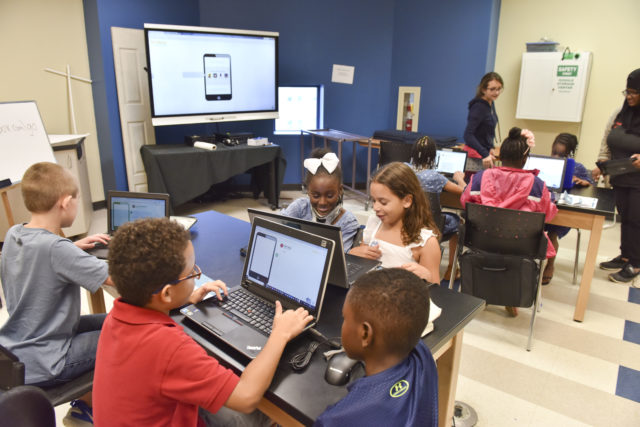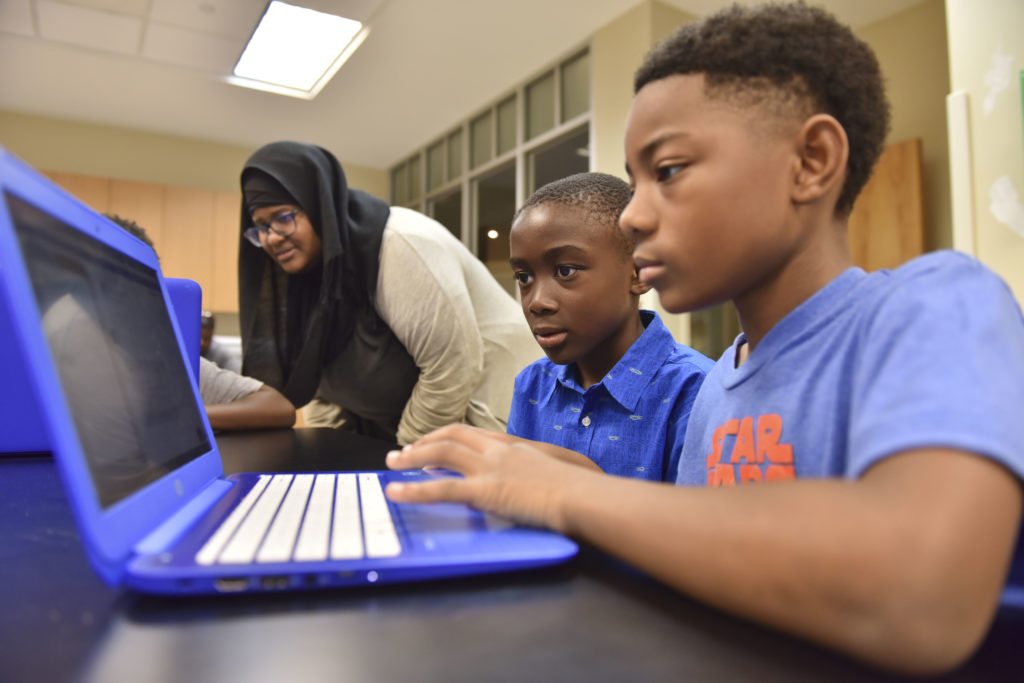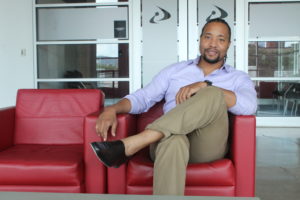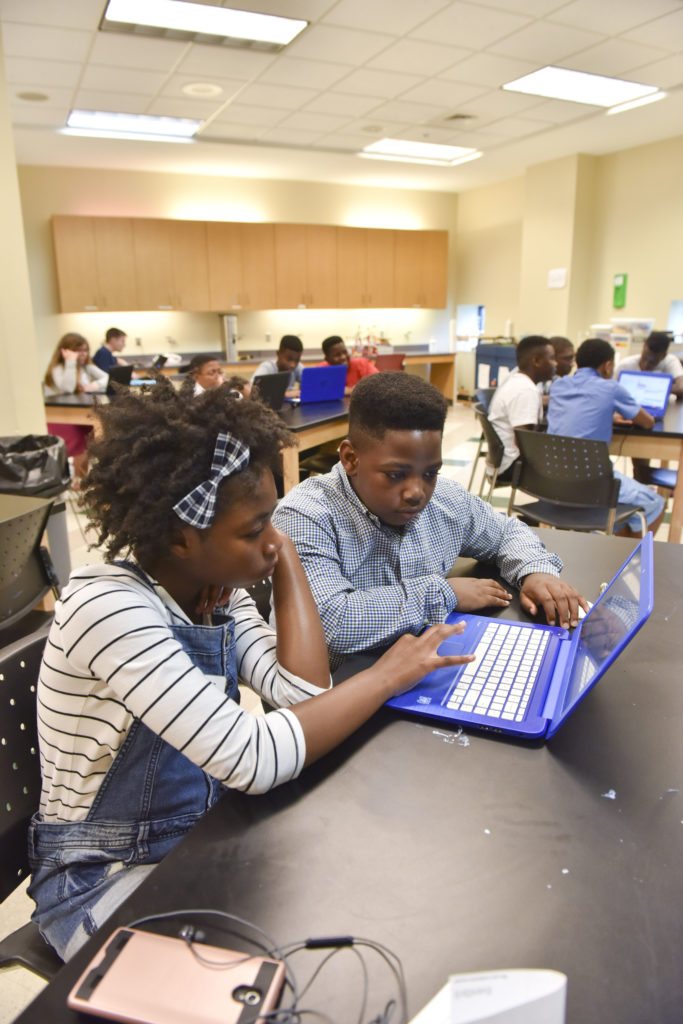
By William C. Singleton III
For the Birmingham Times

Every second Sunday of each month, Luke Robinson, 15, and his dad, Jason, travel about 80 miles from Winfield to the McWane Science Center in downtown Birmingham to participate in TechBirmingham’s coding class.
The Robinsons are motivated to travel for two hours and devote another hour and a half on Sunday afternoons not only because of the lack of youth-oriented coding camps in Winfield but also because Luke is interested in computer animation.
“I’m pretty passionate about computers,” Luke said. “Back home, they don’t really have any coding classes like this. This is my opportunity to do coding with other people.”
Young people like Luke are taking advantage of coding camps and classes that will position them for careers in a world that’s becoming more high-tech. Computer coding—which involves writing programming language that makes computer software, apps, and websites operate—is considered one of the fastest growing fields in the job market.
Computer Coding
“We need a digitally literate workforce,” said Deon Gordon, president of TechBirmingham. “In a lot of ways, every company now is a tech company.”

“A lot of people 30 years ago thought we were going to be taken over by robots,” said Nicole Mubarak, director of Women Who Code Birmingham. “But we’ve been taken over more by software as opposed to hardware.”
Because most companies and businesses rely heavily on computer software, the need for coding analysts and specialists is not just limited to jobs in the tech industry.
“So many banks, insurance companies, and health care providers are concerned about protecting the privacy of their clients’ information, they need to learn how to encrypt their important data,” said TechBirmingham’s Science, Technology, Engineering, and Mathematics (STEM) Coordinator Christina Smith.
TechBirmingham’s coding class, offered since 2015 at McWane, is designed to encourage digital literacy among children in grades three through 12. The free class, offered on the second Sunday of each month from 1:30 p.m. to 3 p.m., operates concurrent with the school year. Nearly 40 students participated in its August class.
“What we want to do is give all kids access to the skills they’ll need for future jobs,” Smith said. “A lot of it is just learning basic coding skills and the fundamentals, the foundations of what they’re going to need if they want to pursue a career in computer software engineering.”
Wave of the Future

Jajuana Smith of Birmingham said her 10-year-old son, Jalen, had taken a coding class previously, but he didn’t connect with the instructor’s personality and teaching style. She wanted to rekindle his interest before he lost it, so she brought him to the TechBirmingham class.
“I needed him to get back in there,” she said. “I need him to grow with it because technology is the wave of the future. You have to be well-versed in a lot of things for the new market. Technology is going to be on every career path no matter what you do. I need him to have a strong foundation, so if that’s what he chooses to do, he can do it.”
During the coding class, students were divided into two groups. In one class students learned basic coding encryption; in the other, they learned to use the basic language of java to build apps.
In Jalen’s class, he and another student learned how to crack a simple code.
“I really like the fact that you get to interact with other people, meet new friends, and still figure something out,” he said. “I’ve done coding, but I’ve never tried to crack a code.”
In the app-development class, students created apps to produce music accompanied by dancing tigers and robots. Eight-year-old Sofia Aelterman was disappointed because she couldn’t get her robot to perform popular dance moves.
“We were trying to make the robot dab, [popularized a few years ago in music by songs like ‘Look at My Dab’ by Atlanta hip-hop group the Migos and in sports by NFL star Cam Newton], but it just wouldn’t dab. It wouldn’t floss, either, [another dance that’s performed by characters in video games like Fortnite]. We’ll get it next time,” she said.
Mubarak, who also serves as a volunteer instructor with TechBirmingham’s coding class, said incorporating coding with fun activities keeps kids engaged and sparks their interest. One exercise involved letting students create an app that flushed their homework down a toilet.
“The kids get really creative,” she said. “They start seeing what they can do, they get their minds get into it, and that’s what they come up with—exploding homework and homework that flushes down the toilet. I just look at them and say, ‘Virtually, this is fine. In reality, don’t do it.’”
For more information about TechBirmingham and its coding class, visit www.techbirmingham.com or contact Christina Smith at christina@techbirmingham.com. For more information about Women Who Code, visit womenwhocode.com/birmingham or follow them on Twitter @WWCBirmingham.



